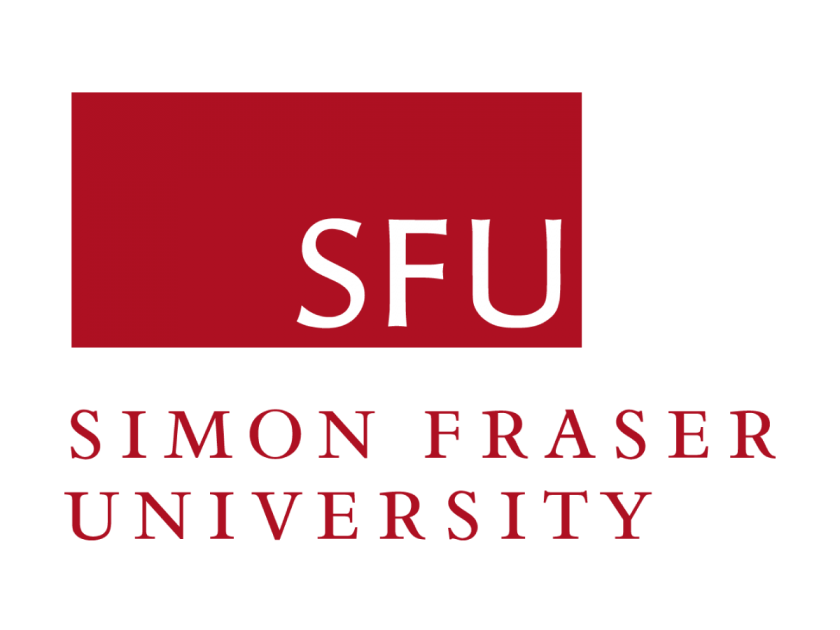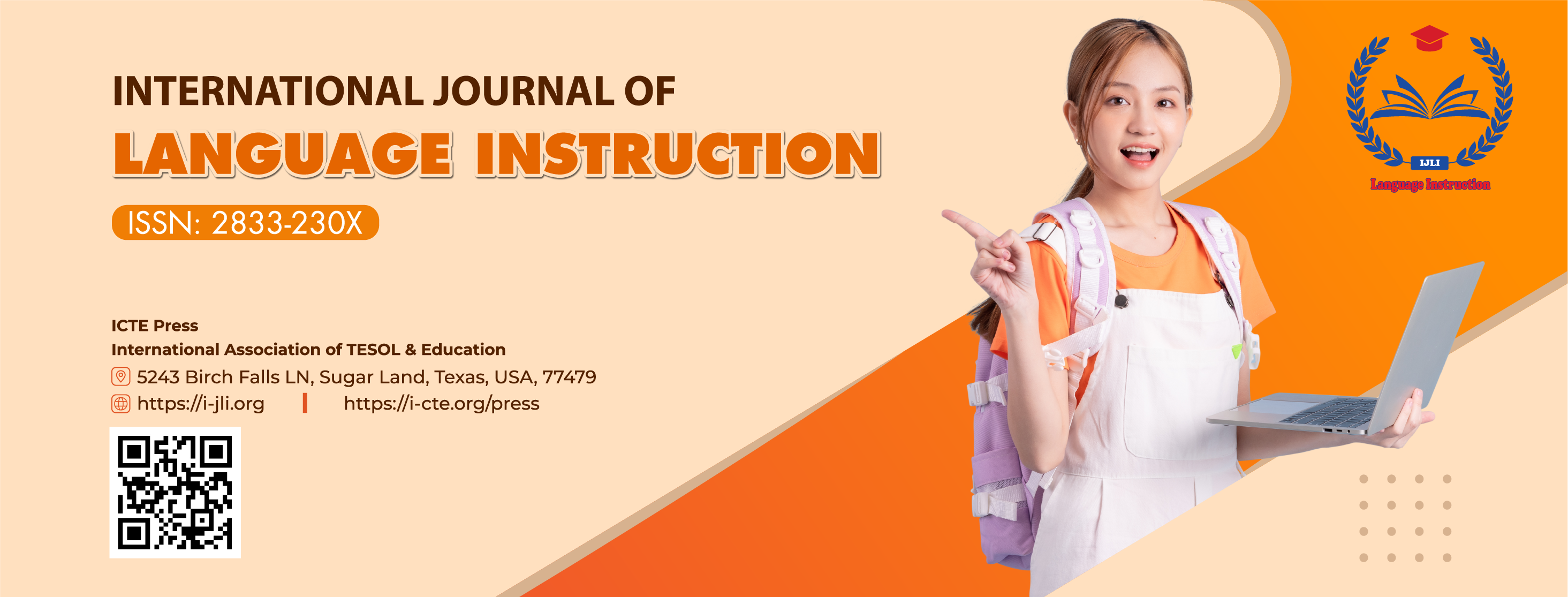The Effects of Culture Shock on The Cultural Adaptation of Overseas Students in Thailand at King Mongkut’s University
DOI:
https://doi.org/10.54855/ijli.24345Keywords:
Culture Shock, International Students, Cross-Cultural AdaptationAbstract
This paper aims to examine the phenomenon of culture shock experienced by international students studying in Thailand for their master’s degree and explore their strategies for adapting to Thai culture. This research employed a semi-structured interview with eight international students at King Mongkut’s University of Technology in Bangkok, Thailand. The participants completed the open-ended questionnaires and provided responses via a Google Docs link. The writer will use Kalervo Oberg's four stages of culture shock to better understand culture shock and the adaptation process of overseas students studying in Thailand. The research illustrates the causes behind international students' desire to pursue educational institutions in Thailand and their experiences with culture shock across the four stages, along with their adaptation process. The findings suggest that overseas students suffer from culture shock in relation to their surroundings, language, cultural norms, and academic areas.
References
Anita Safitri et al. (2024). Culture Shock And Communication Adaptation of Foreign Students At Sumbawa University Of Technology. Journal of Education, Language Teaching, Linguistics and Literature, 1(1), 1-13. https://jurnal.uts.ac.id/index.php/jetlli/index
Bradford, J. H. (2003). Among Cultures: The Challenge of Communication (translated by Ma Zhengqi). Beijing: Communication University of China Press, 125.
Carley, H. D. (2006). Dynamics of Intercultural Communication (Fifth edition). Shanghai: Shanghai Foreign Language Education Press. 126.
Chaiyasat, C. (2020). Overseas students in Thailand: A qualitative study of cross-cultural adjustment of French exchange students in a Thai university context. Journal of Human Behavior in the Social Environment, 30(8), 1060–1081. https://doi.org/10.1080/10911359.2020.1792386
Council, B. (2018). Transnational education in Thailand: Exploring opportunities for the UK.
Doyle, S., Gendall, P., Meyer, L. H., Hoek, J., Tait, C., McKenzie, L., & Loorparg, A. (2009). An Investigation of Factors Associated With Student Participation in Study Abroad. . Journal of Studies in International Education, 14(5), 471-490.
Education, T. Q. (2019). Country report: Thailand. British Council. Retrieved from The Quality Assurance Agency for Higher Education. (2019). Country report: Thailand. Retrieved from https://www.qaa.ac.uk/docs/qaa/international/country-report-thailand-2019.pdf?sfvrsn= ab3fc081_6.
Fitzpatrick, F. (2017), Taking the “culture” out of “culture shock” – a critical review of literature on cross-cultural adjustment in international relocation, Critical Perspectives on International Business, 4(13), 278-296. https://doi.org/10.1108/cpoib-01-2017-0008
Furnham, A. (2020). Culture shock: Psychological reactions to unfamiliar environments. In The Psychology of Culture Shock. Palgrave Macmillan.
Haisley, P., Grandorff, C., Agbonlahor, O., Mendez, S. L., & Hansen, M. (2021). Why study abroad: Differences in motivation between US and international students. Journal of Global Education and Research, 5(2), 185-201. https://doi.org/10.5038/2577-509X.5.2.1146
Hassan Radwan Jamal, & Saodah Wok. (2024). Assessing Cross-Cultural Adaptation Of International Students In Iium. International Journal Of Modern Trends In Social Sciences (Ijmtss), 3(14). Retrieved from https://Gaexcellence.Com/Ijmtss/Article/View/744
Helen Cameron & Catherine Kirkman. (2010). Managing Culture Shock For First Year International Students Entering Australian Universities. University of South Australia International Services. http://fyhe.com.au/past_papers/papers10/content/pdf/12E.pdf
Hussain, M., & Shen, H. (2019). A Study on Academic Adaptation of International Students in China. Higher Education Studies, 9(4), 80-91. https://doi.org./10.5539/hes.v9n4p80
ICEF. (2024, August 29). The rise of alternative destinations: Thailand, Poland, and the Philippines. ICEF Monitor - Market intelligence for international student recruitment. https://monitor.icef.com/2024/04/the-rise-of-alternative-destinations-thailand-poland-and-the-philippines/
Intachakra, S. (2012). Politeness motivated by the “heart” and “binary rationality” in Thai culture. Journal of Pragmatics, 44(5), 619-635. https://doi.org/10.1016/j.pragma.2011.07.016
Kim, J. K. (1980). Explaining acculturation in a communication framework: An empirical test. Communication Monographs, 47(3), 155–179. https://doi.org/10.1080/03637758009376030
Komin, S. (1990). Culture and Work-Related Values in Thai Organizations. International Journal of Psychology, 25(3–6), 681–704. https://doi.org/10.1080/00207599008247921
Kempner, K. M., & Tierney, W. G. (Eds.). (1996). The social role of higher education: comparative perspectives (7), 64
Martin, J. N., & Nakayama, T. K. (2022). Intercultural Communication in Contexts. New York: McGraw-Hill. 289
Milstein, T. (2005). Transformation abroad: Sojourning and the perceived enhancement of self-efficacy. International Journal of Intercultural Relations, 29(2), 217–238. https://doi.org/10.1016/j.ijintrel.2005.05.005
Nguyen, T. H. H., Ho, T. N., Do, T. M. D., & Pham, T. T. T. (2024). Factors Affecting Learner Autonomy in EMI Studying of English-Major Students at some Economics Universities in Hanoi, Vietnam. International Journal of Language Instruction, 3(3), 36–53. https://doi.org/10.54855/ijli.24333
Oberg, K. (1966). Culture Shock: Adjustment to New Cultural Environments. Practical Anthropology, 7, 177-182. https://doi.org/10.1177/009182966000700405
Paul, L. (1988). Communication/Social Difficulty of Thai Students in the Process of Cultural Adaptation. University of Oklahoma.
Pope, J. A., Sánchez, C. M., Lehnert, K., & Schmid, A. S. (2014). Why Do Gen Y Students Study Abroad? Individual Growth and the Intent to Study Abroad. Journal of Teaching in International Business, 25(2), 97-118. https://doi.org/ 10.1080/08975930.2014.896232
Tran, N. K. C., & Nguyen, T. T. H. (2024). The Use of TED Talks to Enhance EFL Students’ Public Speaking Skills: English-Majored Seniors’ Practices and Perceptions. International Journal of Language Instruction, 3(1), 66–90. https://doi.org/10.54855/ijli.24315
Weaver, G. (1994). Culture, communication and conflict: Readings in intercultural relations. Understanding and coping with cross-cultural adjustment stress, New York, NY: Pearson, 160-189.
Yan, W. H. (2008). Cross-Cultural Communication: A Psychological Perspective. Shanghai: Shanghai Academy of Social Science Press.
Downloads
Published
Issue
Section
License
Copyright (c) 2024 Nguyen Duong Minh Quyen

This work is licensed under a Creative Commons Attribution 4.0 International License.
The copyright of all articles published in the International Journal of Language Instruction (ijli) remains with the Authors, i.e. Authors retain full ownership of their article. Permitted third-party reuse of the open access articles is defined by the applicable Creative Commons (CC) end-user license which is accepted by the Authors upon submission of their paper. All articles in the ijli are published under the CC BY-NC 4.0 license, meaning that end users can freely share an article (i.e. copy and redistribute the material in any medium or format) and adapt it (i.e. remix, transform and build upon the material) on the condition that proper attribution is given (i.e. appropriate credit, a link to the applicable license and an indication if any changes were made; all in such a way that does not suggest that the licensor endorses the user or the use) and the material is only used for non-commercial purposes.
Authors are able to enter into separate, additional contractual arrangements for the non-exclusive distribution of the journal's published version of the work (e.g., post it to an institutional repository, in a journal or publish it in a book), with an acknowledgment of its initial publication in this journal.











